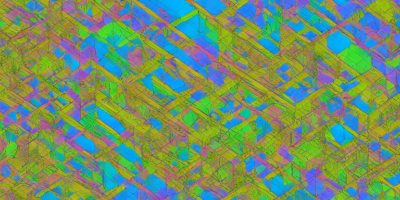In this article, we explore the concepts of computable dimension and lossy decompression in the context of computer science. We delve into the details of these ideas, demystifying complex theories by using relatable analogies and language.
Computable Dimension: A Key Concept
Computable dimension is a fundamental concept in theoretical computer science that measures the complexity of an algorithm. Essentially, it refers to how efficiently an algorithm can solve a problem. Our mindset as humans can be compared to this idea, as our ability to process information and complete tasks is limited by our cognitive abilities. Just as computers have different levels of processing power, algorithms also have varying degrees of complexity based on their computable dimension.
Lossy Decompression: A Common Challenge
Decompression refers to the process of reducing data size without compromising its quality. However, lossy compression involves sacrificing some information to achieve a smaller file size. In this article, we explore how lossy decompression relates to computable dimension. Essentially, we examine how the complexity of an algorithm can impact the quality of compressed data. Just as a JPEG image may lose details during compression, an algorithm with high computable dimension may result in lossy compression.
A Point-toю Principle for Finite-State Dimension
In this article, we present a point-toю principle for finite-state dimension that simplifies the calculation of computable dimension. This innovative approach enables us to better understand how computable dimension affects the quality of compressed data. By grasping this concept, we can develop more efficient algorithms with optimal levels of complexity and minimal lossy compression.
Conclusion: Unraveling the Mystery of Computable Dimension
In conclusion, this article offers a comprehensive overview of computable dimension and lossy decompression. We have stripped away the mystique surrounding these concepts by using relatable analogies and language. By mastering these ideas, we can create more efficient algorithms and compress data with minimal quality loss. As our understanding of computable dimension grows, so does our ability to develop innovative solutions in computer science.



